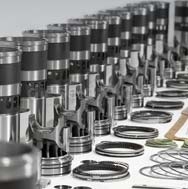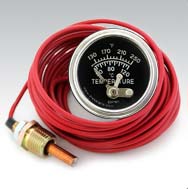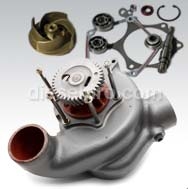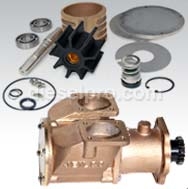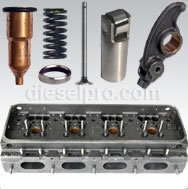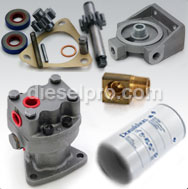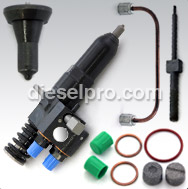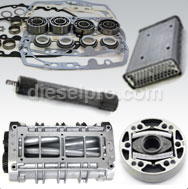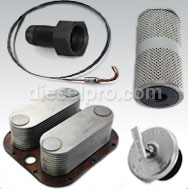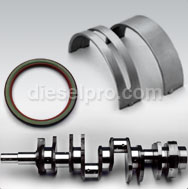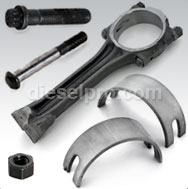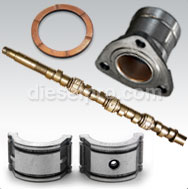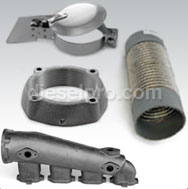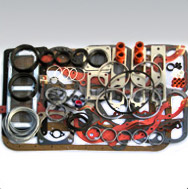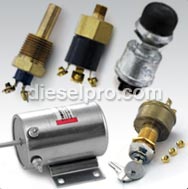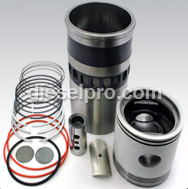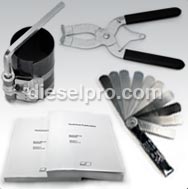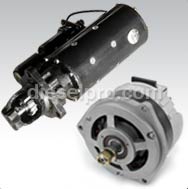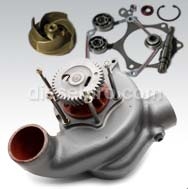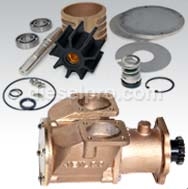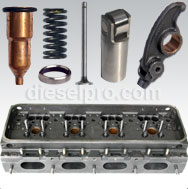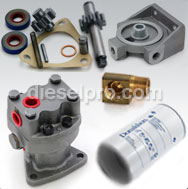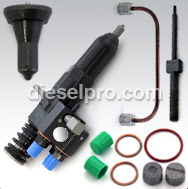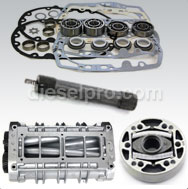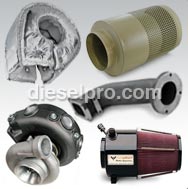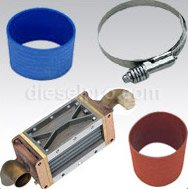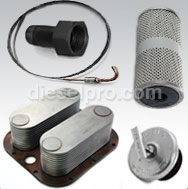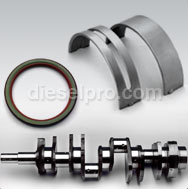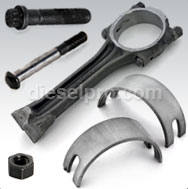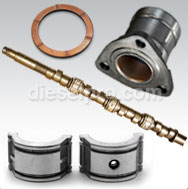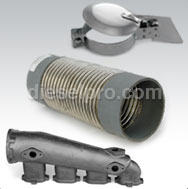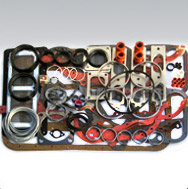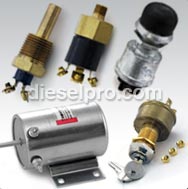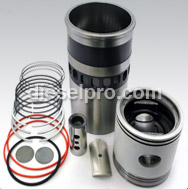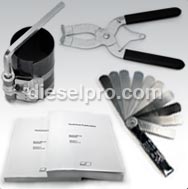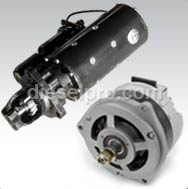
Replacing the fuel injectors on a Detroit Diesel 16V92 engine is a vital part of its maintenance routine to ensure peak performance and efficiency. This guide provides a comprehensive overview of when to replace the injectors, common symptoms of injector issues, and the proper steps for replacement.
Importance of Fuel Injectors
Fuel injectors are critical for delivering the right amount of fuel into the combustion chamber at the precise time and in the correct spray pattern. Faulty injectors can result in poor fuel atomization, uneven combustion, and reduced engine efficiency, leading to increased operating costs and potential damage to engine components.
Signs Indicating Injector Replacement
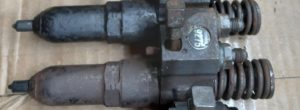
- Decreased Engine Performance:
- Noticeable loss of power during operation.
- Difficulty maintaining consistent acceleration.
- Reduced fuel economy, resulting in higher operating costs.
- Engine Malfunctions:
- Engine misfires or stalls unexpectedly.
- Rough idling, particularly after startup.
- Difficulty in starting the engine, especially in colder conditions.
- Excessive Exhaust Smoke:
- Black smoke indicating over-fueling or poor atomization.
- White smoke often caused by incomplete combustion.
- Blue smoke, which may suggest oil contamination in the combustion process.
- Fuel Leaks or Odors:
- Diesel fuel leakage around injector seals.
- Strong fuel odors near the engine, which may indicate injector seal failure or cracks in the injector body.
- Increased Operating Temperatures:
- Malfunctioning injectors can lead to incomplete combustion, causing elevated engine temperatures.
- Fuel System Contamination:
- Injectors can become clogged by dirt, debris, or water in the fuel system. Regular maintenance, including fuel filter replacements, helps prevent this issue.
- Scheduled Maintenance Intervals:
- Fuel injectors should be inspected and tested during major engine servicing or as part of a routine maintenance schedule. High-hour engines operating under severe conditions may require injector replacement more frequently.
Recommended Injector Replacement Timing
Injectors in the 16V92 engine should be evaluated during each tune-up or major maintenance interval. Typically, replacement is recommended every 2,000 to 4,000 hours of operation, depending on the engine’s workload and operating environment. For engines running under extreme conditions, such as marine or industrial applications, earlier replacement may be necessary.
Want to know more about component replacement timing for Detroit Diesel 16V92 Engines?
Mechanical Injectors for Detroit Diesel 16V92 Engines
Mechanical injectors are a fundamental component of traditional Detroit Diesel 16V92 engines, designed to deliver precise amounts of fuel into the combustion chamber through a purely mechanical process. These injectors rely on the engine’s camshaft and mechanical linkages to create the high pressure necessary for fuel atomization and combustion.
Features of Mechanical Injectors
- Camshaft-Driven Mechanism:
- Fuel delivery is timed using the engine’s camshaft.
- High-pressure fuel is injected directly into the combustion chamber via mechanical force.
- Independent Operation:
- Each injector operates independently, providing precise fuel control for each cylinder.
- Durability:
- Constructed with robust materials, mechanical injectors are designed to withstand extreme operating conditions.
When to Replace Mechanical Injectors
- Wear and Tear:
- Over time, internal components like springs and nozzles can degrade, affecting performance.
- Inspect injectors during routine tune-ups or after 2,000 to 4,000 operating hours.
- Fuel Contamination:
- Dirt, debris, or water in the fuel can cause injector blockages or corrosion, necessitating replacement.
- Performance Issues:
- Noticeable misfires, increased fuel consumption, or uneven engine operation can indicate injector failure.
Maintenance Tips for Mechanical Injectors
- Regularly inspect the injector rack control levers for proper alignment.
- Keep fuel lines clean and free of contaminants.
- Test injectors for spray pattern and pressure consistency during tune-ups.
Mechanical injectors are reliable and straightforward but require regular maintenance to prevent performance issues. Their simplicity makes them easier to troubleshoot and repair compared to electronic systems, making them suitable for harsh environments and heavy-duty applications.
Electronic Injectors for Detroit Diesel 16V92 Engines

Electronic injectors represent a significant advancement in fuel injection technology for Detroit Diesel 16V92 engines, particularly in applications requiring precise fuel delivery and enhanced efficiency. These injectors are integrated with the Detroit Diesel Electronic Control (DDEC) system, enabling advanced fuel management and diagnostics.
Features of Electronic Injectors
- Electronically Controlled Timing:
- The DDEC system monitors engine parameters and adjusts injector timing and duration in real-time for optimal performance.
- Improved Fuel Efficiency:
- Electronic injectors provide precise fuel atomization, reducing waste and improving combustion efficiency.
- Diagnostics Integration:
- The DDEC system can detect and log injector performance issues, providing diagnostic codes for easy troubleshooting.
- Enhanced Emissions Control:
- Electronic injectors help maintain compliance with emissions standards by optimizing fuel delivery.
When to Replace Electronic Injectors
- Performance Degradation:
- Symptoms such as reduced power, uneven acceleration, and black smoke may indicate injector malfunction.
- Replace injectors when diagnostics indicate persistent injector-related faults.
- Electrical Failures:
- Wiring harness or solenoid issues can lead to injector failure, requiring repair or replacement.
- Excessive Operating Hours:
- Replace electronic injectors after 4,000 to 6,000 operating hours or as indicated in your engine’s maintenance schedule.
Maintenance Tips for Electronic Injectors
- Use only high-quality diesel fuel to prevent clogging and wear.
- Regularly inspect and maintain the electrical connectors and wiring harness for signs of damage or corrosion.
- Follow DDEC diagnostic procedures to ensure injectors operate within factory specifications.
Advantages of Electronic Injectors
- Precise Fuel Control:
- Electronically controlled injectors deliver precise amounts of fuel, improving engine efficiency and responsiveness.
- Adaptability:
- Electronic injectors can adjust fuel delivery based on engine load, temperature, and other real-time conditions.
- Enhanced Monitoring:
- Continuous feedback from the injectors to the DDEC system allows for proactive maintenance and better engine management.
While more complex than mechanical injectors, electronic injectors offer superior performance and diagnostics capabilities. They are ideal for modern applications requiring strict emissions compliance and high operational efficiency. However, proper maintenance and the use of compatible diagnostic tools are essential to maximize their lifespan.
Step-by-Step Guide for Injector Replacement
1. Engine Preparation
- Shut down the engine and allow it to cool completely.
- Disconnect the battery to prevent accidental startup.
- Remove the valve rocker covers to access the injectors.
2. Inspection of the Fuel System
- Check the fuel lines for leaks or clogs.
- Ensure the fuel system is free of contamination, such as water or debris.
- Replace the fuel filter if it shows signs of wear or clogging.
3. Removing the Old Injectors
- Disconnect the fuel pipes connected to the injector.
- Loosen the injector clamp bolt and remove the clamp.
- Carefully extract the injector using an injector puller tool to avoid damaging the cylinder head.
- Cover the injector port to prevent debris from entering the cylinder.
4. Preparing the New Injectors
- Inspect the new injectors for any visible defects.
- Fill the injectors with clean fuel oil to ensure they are primed and ready for operation.
- Check that the injector seals are properly installed and in good condition.
5. Installing the New Injectors
- Place the injector into its port, ensuring proper alignment with the fuel lines.
- Secure the injector with the clamp and tighten the bolt to the specified torque (20-25 lb-ft).
- Reconnect the fuel pipes, taking care not to overtighten and damage the flared ends.
6. Final Adjustments
- Adjust the injector rack control lever to ensure correct operation.
- Set the exhaust valve clearance to factory specifications.
- Perform a complete engine tune-up if multiple injectors were replaced.
7. Testing and Verification
- Reinstall the valve rocker covers.
- Start the engine and check for smooth operation.
- Inspect for leaks around the fuel lines and injectors.
- Monitor the exhaust for signs of proper combustion.
Maintenance Tips to Extend Injector Life
- Use Clean Fuel: Always use high-quality diesel fuel and ensure the fuel tank is free of contaminants.
- Replace Fuel Filters Regularly: Clogged filters can lead to debris entering the injectors.
- Monitor Engine Performance: Early signs of injector problems can often be detected through changes in performance or exhaust emissions.
- Schedule Routine Tune-Ups: Periodic adjustments and inspections ensure the injectors operate within factory specifications.
Conclusion
Replacing the injectors in a Detroit Diesel 16V92 engine is an essential part of maintaining engine performance and reliability. Regular inspections, prompt replacement of worn injectors, and adherence to a strict maintenance schedule will help ensure optimal operation. If injector issues persist or if replacement becomes necessary, follow the steps outlined above to complete the process safely and effectively.
Parts Catalog For Detroit Diesel 16V92 Non – Turbo MarineEngine:
-
1
-
2
-
3
-
4
-
5
Cylinder head Detriot Diesel 16V92 Non Turbo Marine Engine
-
6
Fuel Pump for Detriot Diesel 16V92 Non Turbo Marine Engine
-
7
-
8
-
9
Oil Pump For Detriot Diesel 16V92 Non Turbo Marine Engine
-
10
Crankshaft For Detriot Diesel 16V92 Non Turbo Marine Engine
-
11
-
12
-
13
-
14
Gaskets For Detriot Diesel 16V92 Non Turbo Marine Engine
-
15
-
16
-
17
-
18
- Detriot Diesel 16V92 Non Turbo Marine Engine Starters & Alternators
Parts Catalog For Detroit Diesel 16V92 Turbo Marine Engine:
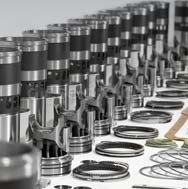
-
2
Gauges For Detriot Diesel 16V92 Turbo Marine Engine
-
3
Water Pumps For Detriot Diesel 16V92 Turbo Marine Engine
-
4
-
5
Cylinder head For Detriot Diesel 16V92 Turbo Marine Engine
-
6
Fuel Pump For Detriot Diesel 16V92 Turbo Marine Engine
-
7
Injectors For Detriot Diesel 16V92 Turbo Marine Engine
-
8
-
9
Turbo For Detriot Diesel 16V92 Turbo Marine Engine
-
10
-
11
Oil Pump For Detriot Diesel 16V92 Turbo Marine Engine
-
12
Crankshaft For Detriot Diesel 16V92 Turbo Marine Engine
-
13
Connecting Rod For Detriot Diesel 16V92 Turbo Marine Engine
-
14
Camshaft For Detriot Diesel 16V92 Turbo Marine Engine
-
15
Exhaust For Detriot Diesel 16V92 Turbo Marine Engine
-
16
-
17
Switches & Solenoids For Detriot Diesel 16V92 Turbo Marine Engine
-
18
Cylinder Kit For Detriot Diesel 16V92 Turbo Marine Engine
-
19
Manuals & Tools For Detriot Diesel 16V92 Turbo Marine Engine



 Free US Calls: 1-888-433-4735
Free US Calls: 1-888-433-4735 International: 305-545-5588
International: 305-545-5588
